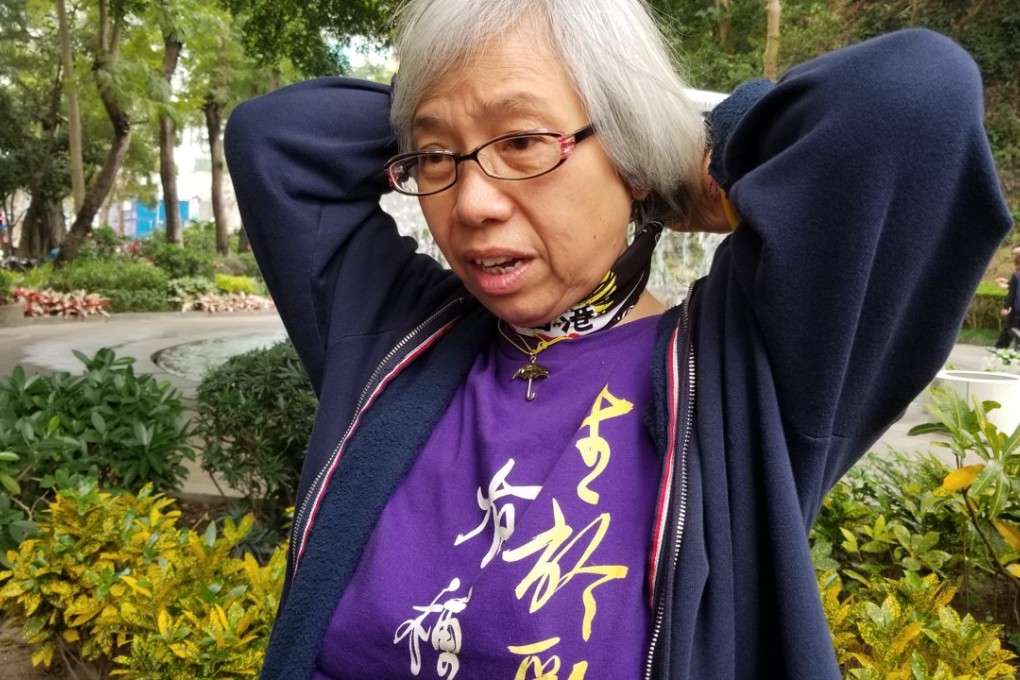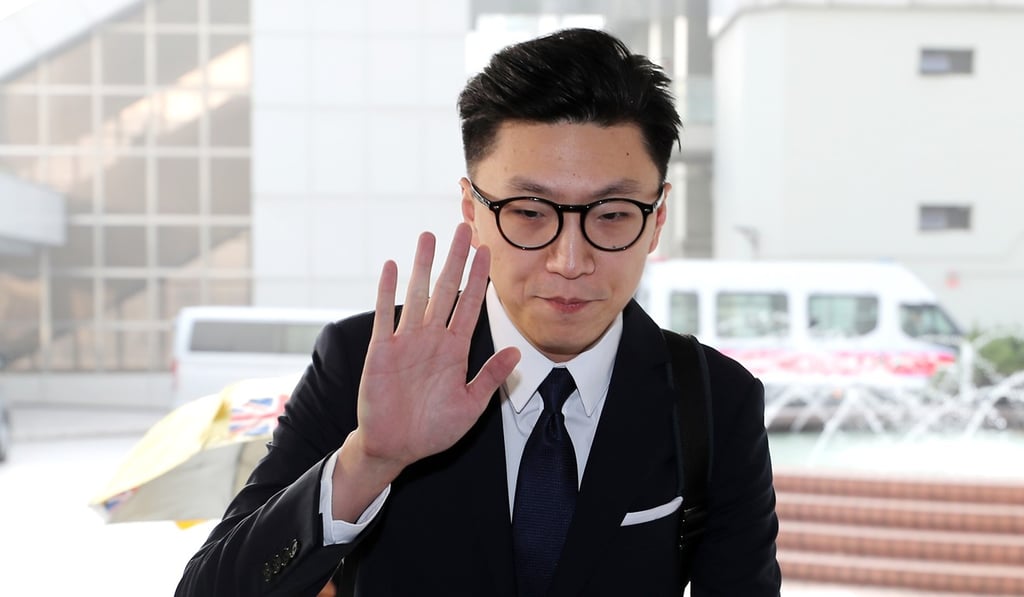Scarf with political message lands supporter at Edward Leung trial in hot water
The 61-year-old woman was convicted of contempt of court by a High Court judge for her scarf that said “reclaim Hong Kong”

A scarf with the words “reclaim Hong Kong” landed a supporter of Hong Kong localist Edward Leung Tin-kei in hot water on Wednesday, and she was convicted of contempt of court but granted bail without having to pay cash.
Alexandra Wong Fung-yiu, 61, who had been coming daily to the high-profile riot trial of Leung and four other co-defendants at the High Court, did not get a chance to defend herself.
Madam Justice Anthea Pang Po-kam told her to return on March 29 – or bring along a lawyer – for sentencing.
The incident raised eyebrows among legal experts, who called it “disturbing” and “extreme”, as the woman’s right to observe the hearing was pitted against the court’s need to run its trial smoothly.

On Wednesday, Wong, wearing the scarf, was in the lobby of the court building watching the live stream of the hearing in a fifth-floor courtroom.